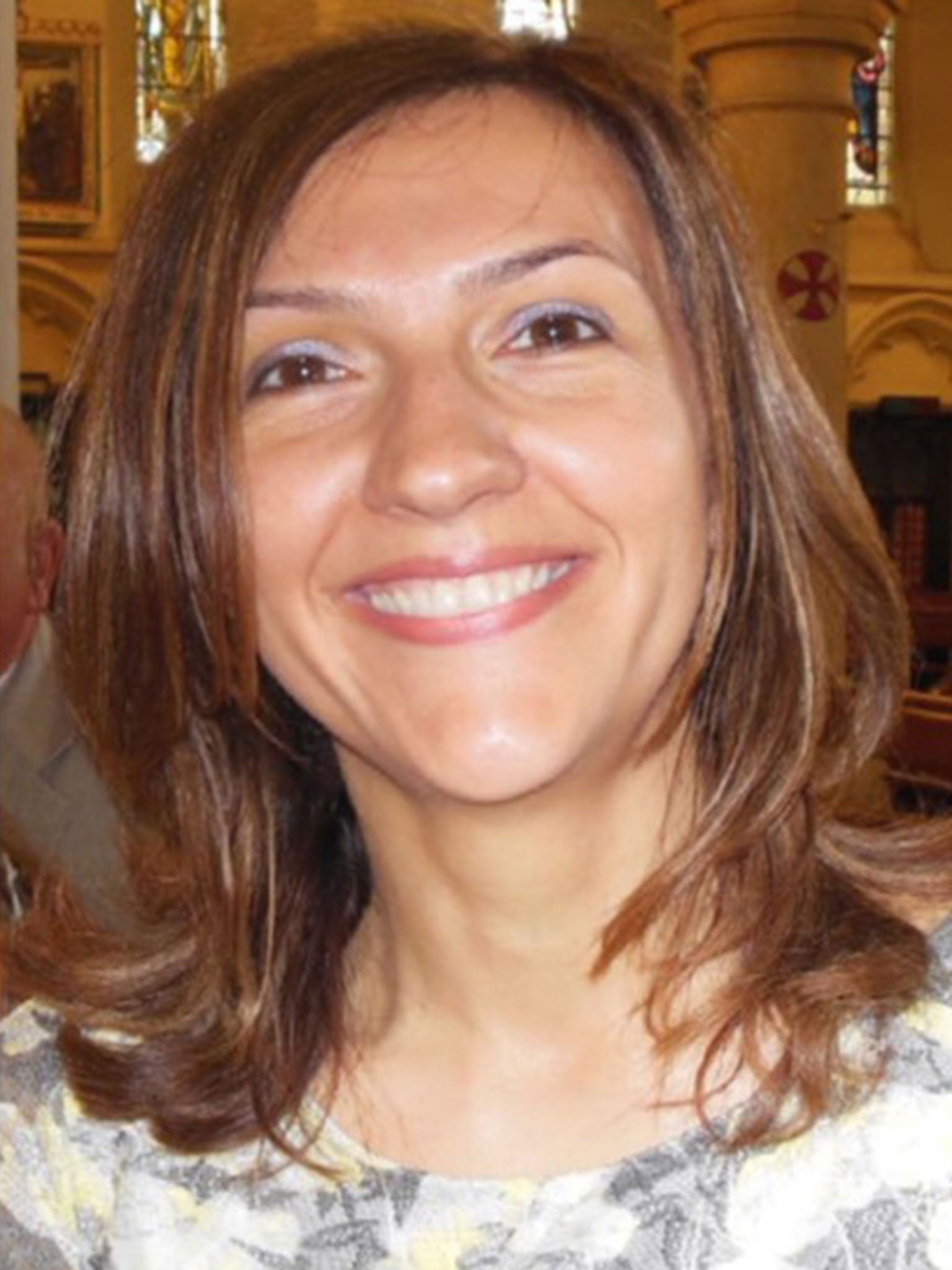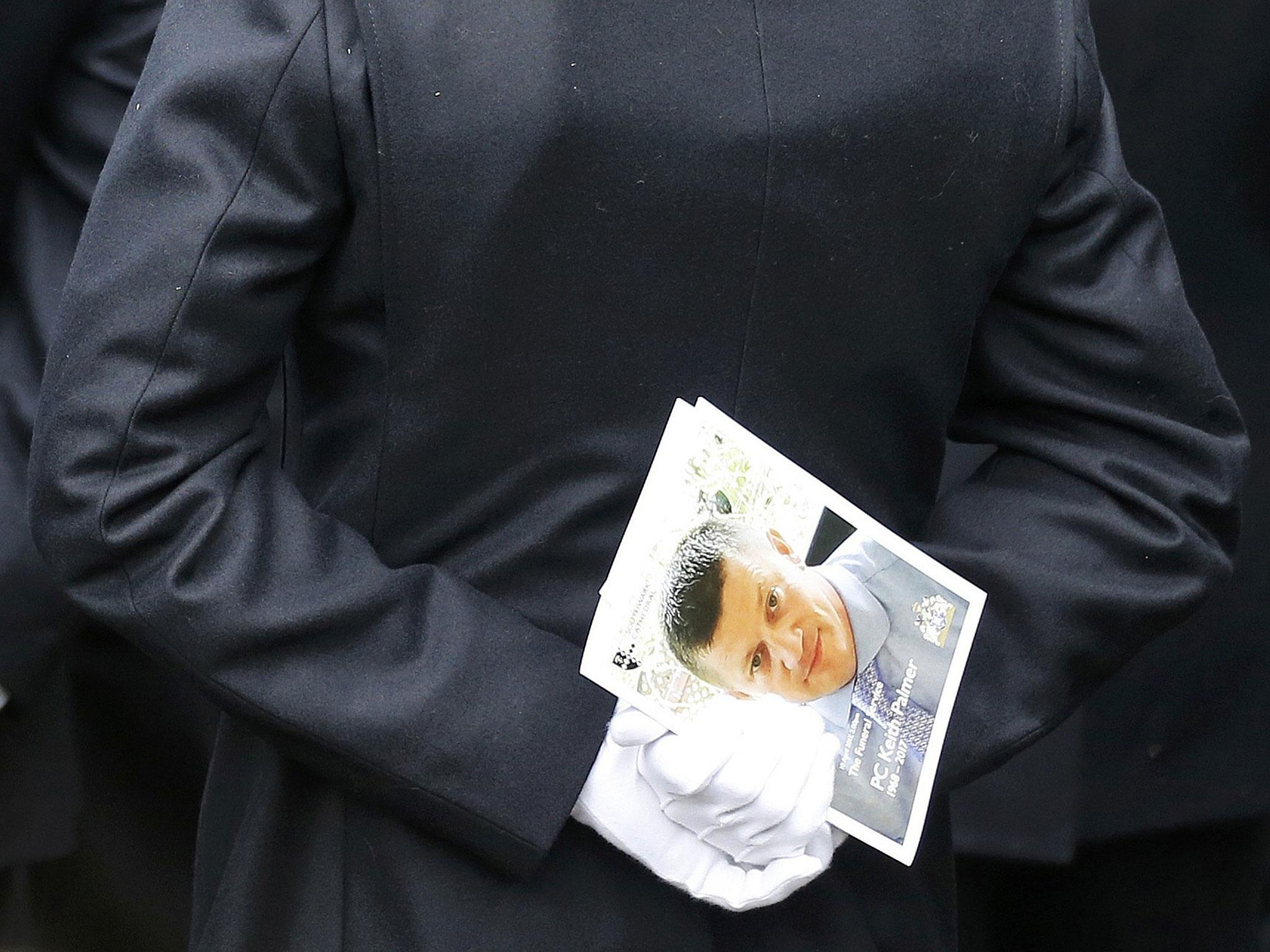Westminster attack: 'Hero' died after pushing wife out of car's path moments before impact, inquest hears
Inquests into deaths of Khalid Masood's victims hear Kurt Cochran was the first to be fatally struck in 82-second attack
The wife of an American tourist killed in the Westminster attack has paid tribute to her “hero” after he pushed her away from the terrorist’s oncoming car.
Kurt and Melissa Cochran had been celebrating their wedding anniversary in London when they were walking across Westminster Bridge on 22 March 2017.
CCTV images of the moment Khalid Masood sped towards the couple were presented to inquests into the victims’ deaths at the Old Bailey in London.
The court was played distressing footage of the attack, showing Masood repeatedly mounting the pavement to hit pedestrians along Westminster Bridge before stabbing PC Keith Palmer to death outside the Houses of Parliament.
The footage showed Mr Cochran pushing his wife away from the car’s path in the second before he was fatally struck.
The 54-year-old was thrown over the bridge and dropped more than 5m to the embankment walkway below, where he was later pronounced dead from his injuries.
In a statement read to the court by her sister, Mrs Cochran called her husband of 25 years “my inspiration, my rock star and overall my hero”.
“I was so lucky to have had 25 wonderful years with the man of my dreams. He made me laugh every single day,” she said.
“I am forever grateful for the time we had together, allowing me to be the mother to his children and especially his heroic actions on that day, saving my life.”
Mrs Cochran, who lives in Utah with their two sons, added: “I am saddened and sick of the hatred in the world, I wish everyone had Kurt’s love and compassion for others.”
Detective Superintendent John Crossley, the Metropolitan Police’s senior investigating officer for the attack, said Mr Cochran was the first victim to be fatally struck by Masood.
“Kurt could clearly see the vehicle coming towards them and pushed Melissa out the way,” he added, praising his “instinctive courage’’.
His wife was also hit by the car and sustained severe injuries, before Masood ploughed into his next victim, 75-year-old Leslie Rhodes.
The retired window cleaner and lifelong Londoner, who was on his way home from nearby St Thomas’s hospital, was dragged under the car for 33m, the inquest heard.
He was taken to King’s College hospital but he never regained consciousness and died of head injuries the following day.
Mr Rhodes’s niece described him as a “kind and loyal man”, adding: “Everyone loved him. He would do anything to help anyone who needed it.”
She said: “We were devastated and incredibly angry that this had happened to Les... he will be greatly missed.”
Masood next struck Aysha Frade, a 44-year-old British woman of Spanish heritage who was walking over the bridge on her way to pick her children up from school.
Det Supt Crossley said she was hit from behind and thrown 17m into the road, where she was run over by a bus and suffered catastrophic head injuries that killed her instantly.
Ms Frade’s relatives told how she had raised fears over terror attacks after her job at DLD College moved to Westminster.
Her sister, Michelle, told the court: “She said she was worried about terror attacks, which we shrugged off and put it down to her usual nervousness. We said if anything she would be in the safest part of London.”
John Frade, her husband, said: “She worried about the new location of campus, moments away from parliamentary.. she asked me several times, ‘What if anything were to happen in Westminster?’”
He said he “could not imagine” an attack happening in one of the most secure parts of Britain, guarded by police and under CCTV surveillance.
Mr Frade said his wife’s spirit would live on through their two daughters, adding: “We loved being a family, the two of us together, always... she was cruelly and brutally ripped way from us.”
The last victim fatally struck was 31-year-old Romanian interior designer Andreea Cristea, who was on holiday in London with her boyfriend.
The inquest heard that she had just taken a photo from Westminster Bridge when Masood struck her, throwing her into the River Thames 12.5m below.

Ms Cristea, whose boyfriend was also injured, was recovered from the water by boats almost 9 minutes later but could not be saved. Monday would have been her 33rd birthday.
They read out a note Ms Cristea wrote on New Year’s Day 2017, describing her plans to buy her first house, continue her business success and start a family.
“The year 2017 will be the best year of my life from every point of view,” she said.
“I will have a wonderful man by my side, who will love and cherish me, and with this man I will start a wonderful family.”
Masood crashed his car into gates outside the Houses of Parliament, ran into the carriage gates vehicle entrance and stabbed PC Palmer to death before being shot by close protection officers.
Footage showed Masood pursuing PC Palmer as he tried to run away, and stabbing him repeatedly after he fell to the ground.
The officer was able to run a short distance after the terrorist was distracted by two of his colleagues, but collapsed and died at the scene from a wound to his chest.
Two plain clothed officers were recorded running towards the scene with their handguns drawn, and the inquest heard they shot Masood three times after he refused to drop his weapons.

Mr Palmer’s sister, Angela, described the officer as a “funny” man who loved his work with the Metropolitan Police.
“He died while protecting strangers while doing his job,” she added. “His family and friends remember him as a funny, caring, loving family member. The very best father, son, brother and friend.”
Three of Mr Palmer’s former police colleagues also paid tribute to the decorated officer, who was named “thief-taker of the year 2015”.
The Westminster incident was the first attack claimed by Isis in the UK, being followed by four more terror incidents over the coming months.
Mark Lucraft QC, the Chief Coroner of England and Wales, expressed hope that the inquests would “give some comfort” to victims’ families by answering their many questions.
“The lives of many were torn apart by 82 seconds of high and terrible drama,” he added, after opening the hearing with a minute’s silence.
The inquest will examine what police and intelligence agencies knew of Masood, who was known to MI5 as an Islamist extremist, as well as the security arrangements at Westminster Bridge and the Houses of Parliament, and police training and body armour.
A lawyer representing families of some of the victims said they would be questioning why barriers were not in place along the bridge, after footage showed Masood swerving to avoid the one at the bottom of Big Ben that protected dozens of teenagers.
The inquest also heard there was no permanent post for firearms officers at the carriage gates when the attack took place, and that those assigned to guard the palace yard were on mobile patrol.
Det Supt Crossley said the investigation has found no evidence that Masood was working with anyone else and that none of the material viewed on his electronic devices breached terror laws, although it did show an “anti-UK, anti-west mindset” regarding foreign policy.
A preliminary hearing in January heard that Masood had taken steroids before launching the frenzied rampage.
An inquest into his death will be held separately from those of his victims at a later date.

